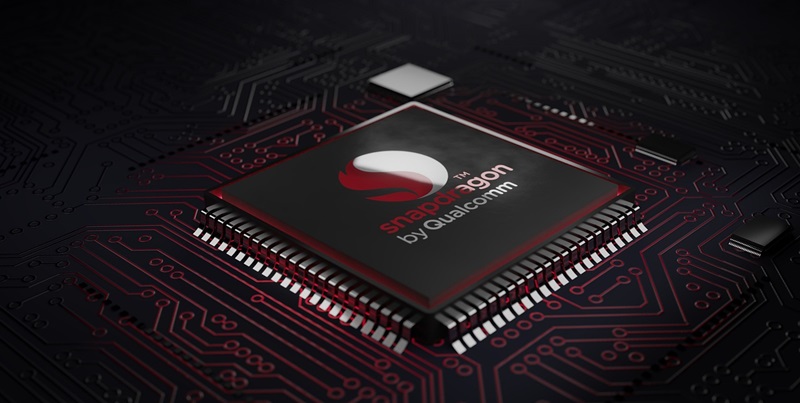In the latest round of smartphone chip performance evaluations, the Qualcomm Snapdragon 8 Gen 4 for Galaxy has shown less than stellar results, according to Geekbench test data. This modified processor, designed specifically for Samsung’s upcoming Galaxy S25 Ultra, falls significantly short of its regular Snapdragon 8 Gen 4 counterpart, raising questions about its readiness for the high-stakes smartphone market. Key metrics reveal considerable performance gaps that have caught the attention of industry insiders and tech enthusiasts alike. Despite these concerns, there is still room for optimization as pre-launch developments proceed.
Performance Discrepancies and Geekbench Scores
Qualcomm Snapdragon 8 Gen 4 vs. Snapdragon 8 Gen 4 for Galaxy
The Geekbench test results, which clocked the Snapdragon 8 Gen 4 for Galaxy at 3,096 in single-core and 9,080 in multi-core scores, indicate a noticeable disparity when compared to the regular Snapdragon 8 Gen 4. The latter boasted more impressive results with single-core and multi-core scores of 3,296 and 10,049, respectively. One of the primary factors contributing to this performance gap is the reduced clock speeds observed in the customized variant for Galaxy devices. Specifically, the P-cores of the Snapdragon 8 Gen 4 for Galaxy were limited to 4.19 GHz, while the E-cores ran at 2.90 GHz, in contrast to the P-core speed of 4.32 GHz and E-core speed of 3.53 GHz in the standard version.
These seemingly minor differences in clock speeds can significantly impact the overall performance of a device. Clock speed limitations could stem from a variety of factors, including thermal management concerns, power efficiency considerations, or specific design constraints aimed at optimizing other aspects of the chip’s behavior. Regardless, the initial scores reflect early-stage evaluations and may not necessarily represent the final performance capabilities of the Snapdragon 8 Gen 4 for Galaxy. It is vital to consider that these benchmarks are pre-launch figures, and the scores may improve following final software optimizations and hardware refinements.
Implications for Samsung Galaxy S25 Ultra
The underperformance of the Snapdragon 8 Gen 4 for Galaxy in initial benchmarks carries significant implications for Samsung’s flagship S25 Ultra. As the centerpiece of the upcoming Galaxy S25 lineup, the S25 Ultra is expected to set new standards in smartphone performance and user experience. However, the current gap in performance metrics could affect its competitive positioning, especially in a market where consumers increasingly demand high efficiency and processing power. This is of particular concern considering the stiff competition posed by other industry leaders, such as Apple’s latest A18 and A18 Pro processors, which have momentarily reclaimed the lead in smartphone chip performance.
Samsung and Qualcomm are presumably aware of these stakes and are likely to be working intensively behind the scenes to address the performance lag. Collaborative efforts between the two industry giants aim at fine-tuning the chip’s capabilities before the Galaxy S25 Ultra hits the market. Such adjustments may include improved thermal designs to handle higher clock speeds better, software optimizations to enhance overall efficiency, and any necessary modifications to the chip’s architecture. Despite the current underperformance, there remains a high expectation that the finalized device will exceed initial benchmarks once these optimizations are completed.
Broader Industry Context and Competition
Qualcomm vs. Apple: An Ongoing Battle
The smartphone processor market is characterized by an ongoing battle for supremacy, primarily between Qualcomm and Apple. Apple’s recent release of the A18 and A18 Pro processors temporarily positions the tech giant at the forefront of the mobile CPU race. These processors have set a new benchmark in mobile performance, emphasizing efficiency and speed, and raising the bar for competitors like Qualcomm. The initial underperformance of the Snapdragon 8 Gen 4 for Galaxy underscores the challenges Qualcomm faces in maintaining its competitive edge. However, it also reflects the dynamic nature of technological advancements, where continual iterations and improvements are pivotal.
Qualcomm’s commitment to excellence is evident through its proactive stance in refining the Snapdragon 8 Gen 4 for Galaxy. The company acknowledges that the mobile processor landscape is highly competitive and that innovations must meet or exceed customer expectations. The collaborative relationship between Qualcomm and Samsung, as seen in their joint efforts to optimize the Snapdragon 8 Gen 4 for Galaxy, is a strategic move to counteract Apple’s advancements. The stakes are high, but these companies are no strangers to the rigors of innovation, and they are likely to rise to the challenge with vigorous R&D efforts.
Future Prospects and Anticipations
In recent smartphone chip performance evaluations, the Qualcomm Snapdragon 8 Gen 4 for Galaxy has delivered underwhelming results according to Geekbench testing data. This customized chip, tailored specifically for Samsung’s highly anticipated Galaxy S25 Ultra, lags considerably behind its standard Snapdragon 8 Gen 4 counterpart. This discrepancy has sparked concern regarding its readiness for entry into the fiercely competitive smartphone market. The key performance indicators reveal notable gaps that have caught the attention of many industry insiders and tech enthusiasts. Despite these underwhelming metrics, there’s still potential for improvement, as further optimizations could occur before the official launch. Industry experts stress that software updates and hardware tweaks might alleviate some of these performance issues, providing hope that the final product will meet expectations. As pre-launch developments continue, both Samsung and Qualcomm have the opportunity to fine-tune this processor to better compete with rivals, ensuring it doesn’t disappoint when it finally reaches consumers.

